What is the best Cloves substitute?
Do you need a cloves substitute? Have you run out of cloves or are you tired of using cloves in your recipes? Well, look no further! In this article, we will introduce you to the top clove alternatives. Alternatives that are sure to spice up your cooking and take your culinary creations to the next level. Try using, Ground Cloves, Nutmeg, Cinnamon, Allspice, Cardamom, Mace, Peppercorns, Star Anise, Five-Spice Powder or Ginger.

What are Cloves?
While cloves are known for their intense and distinct flavor, sometimes you may want to switch things up and experiment with different tastes. Whether you’re baking, or making savory dishes, these alternatives will provide you with a range of flavor profiles to suit your preferences.
From the warm and earthy notes of allspice to the subtle sweetness of nutmeg, each alternative has its unique characteristics that can complement a variety of dishes.
So, if you’re ready to explore new flavors and add a twist to your cooking, keep reading.
Okay, before we look at your cloves substitute options, let’s deal with that empty cupboard situation!
Where can I buy Cloves?
If you want to be more prepared and ensure you don’t run out of cloves, then you should stock up now.
Nowadays, most delicatessens and general supermarkets stock a wide variety of cloves. Or if you prefer you can also purchase cloves on-line.
So why not jump on and place your order today.
STOCK UP NOW!
Authentic Ceylon Whole Cloves, organically grown in Sri Lanka. Fresh and fragrant, use in savory or sweet recipes. Make teas, flavor ciders, or stud your ham with these little tatse powerhouses.
Certified USDA Organic. Also gluten-free and Non-GMO.
What can I substitute for Cloves?
Here are some of the best ingredients to substitute the flavor and role that cloves provide in your recipes.
- Ground Cloves
- Nutmeg
- Cinnamon
- Allspice
- Cardamom
- Mace
- Peppercorns
- Star Anise
- Five-Spice Powder
- Ginger
Clove substitutes
Ground Cloves
You can use ground cloves as a substitute for whole cloves in your recipes. In fact, it’s a convenient option because it’s essentially the same spice but in a different form. Just keep in mind that ground cloves are more concentrated in flavor, so you’ll need to adjust the quantity accordingly.
Typically, you can use a 1/4 to 1/2 teaspoon of ground cloves to replace one whole clove. However, it’s a good idea to start with a smaller amount and add more gradually. This allows you to keep control over the flavor profile. This way, you won’t accidentally overdo it and make your dish too spicy.
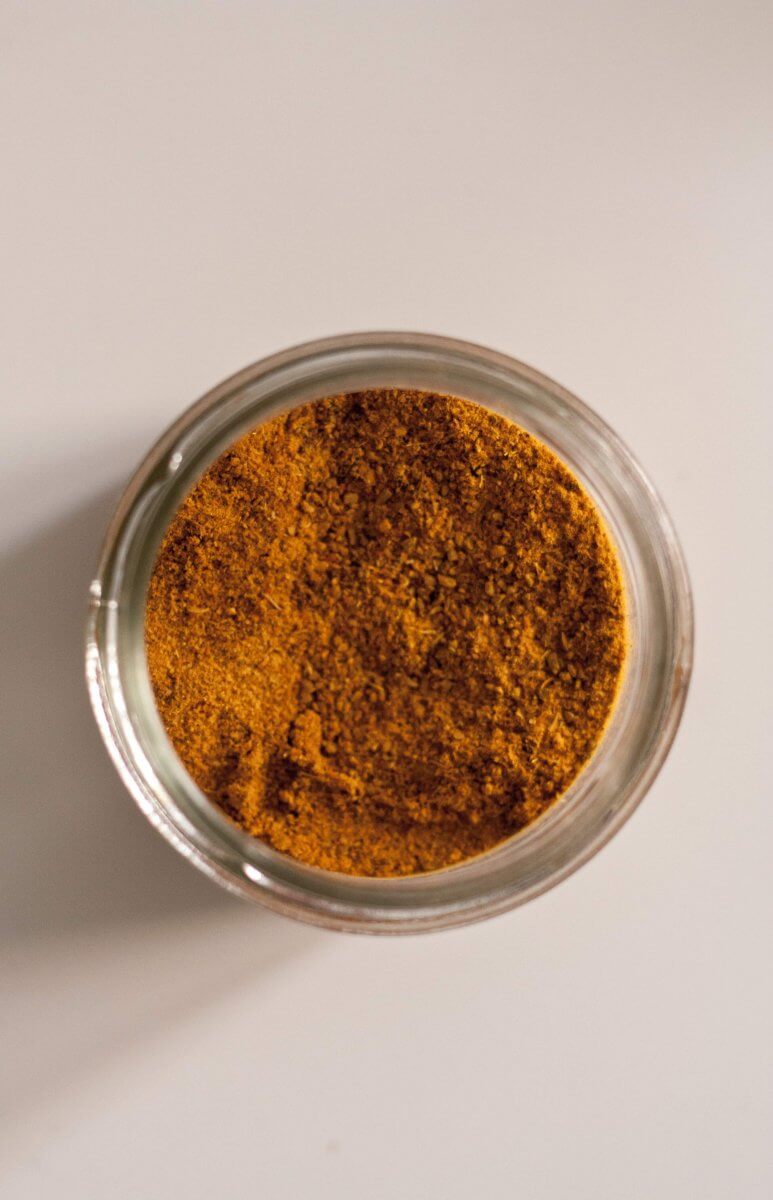
Nutmeg
Nutmegs are actually aromatic seeds that come from the fruit of the nutmeg tree. They have a warm, nutty, and slightly sweet flavor. Nutmeg is typically used as a spice and is available in two forms: whole nutmeg and ground nutmeg.
Now, can we use nutmeg as a substitute for whole cloves? Yes. While nutmeg has a distinct flavor profile, it can work well as a substitute in certain recipe. Think of recipes where cloves provide a warm, sweet, and slightly spicy note. However, keep in mind that nutmeg has its own unique taste, so the flavor of your dish may change slightly.
For substitution, you can use ground nutmeg as a replacement for whole cloves. Start with a smaller amount and adjust to taste. It’s particularly suitable in recipes like baked goods, soups, and creamy sauces. Be mindful not to use too much, as nutmeg has a strong flavor and can overpower your dish if used excessively.
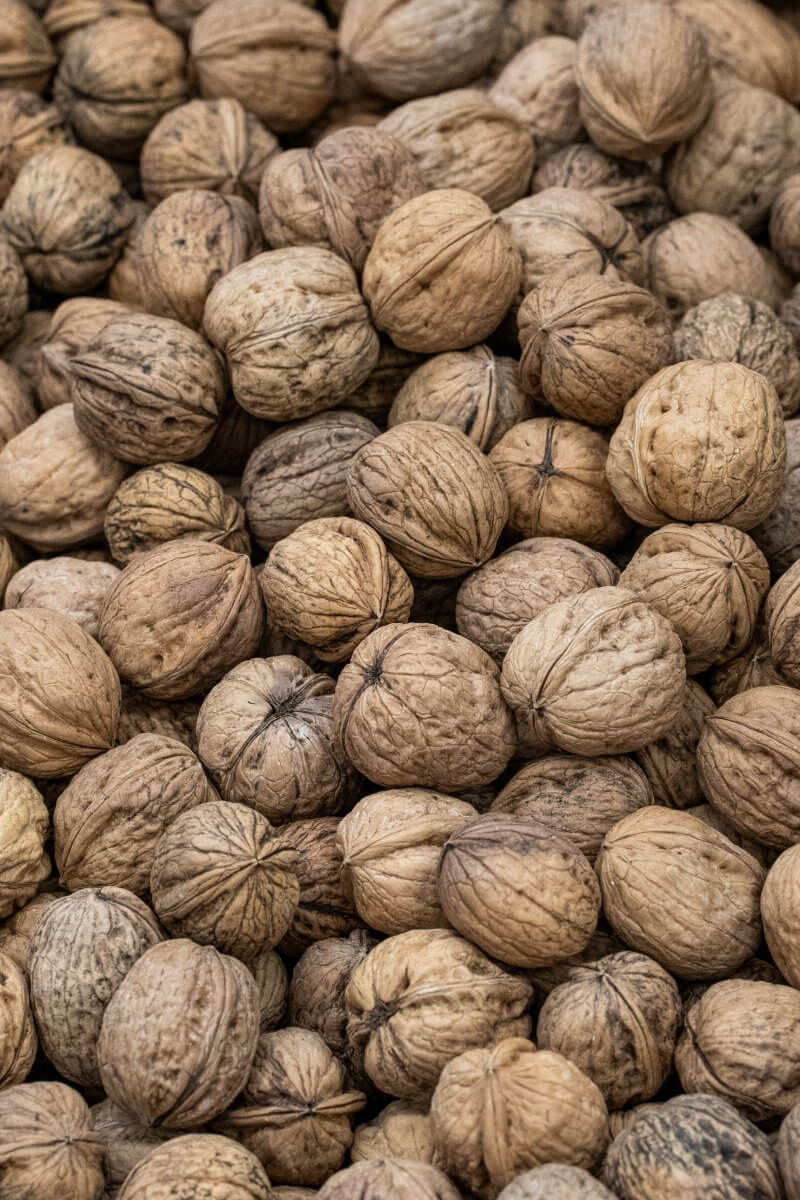
Cinnamon
Cinnamon is a spice obtained from the bark of trees belonging to the Cinnamomum genus. It’s widely used in both sweet and savory dishes and has a warm, sweet, and slightly spicy flavor. Cinnamon is available in two main types: Ceylon cinnamon (considered “true” cinnamon) and Cassia cinnamon. Cassia cinnamon it more commonly found in most grocery stores.
Now, as for using cinnamon as a substitute for whole cloves, it can work in certain recipes, but you should be mindful of the flavor differences. Cloves have a unique taste that’s warm, slightly sweet, and a bit spicy, whereas cinnamon provides a different kind of warmth and sweetness.
If you find yourself without whole cloves and need a substitute, you can use ground cinnamon in a pinch. However, be aware that cinnamon’s flavor profile is distinct, so it might alter the taste of your dish somewhat. Use in recipes where the warm and sweet notes of cloves are not the primary focus.
For baking or cooking, you can start by using about a quarter to half a teaspoon of ground cinnamon for each whole clove in your recipe. You can always add more, but you can’t take it back out!
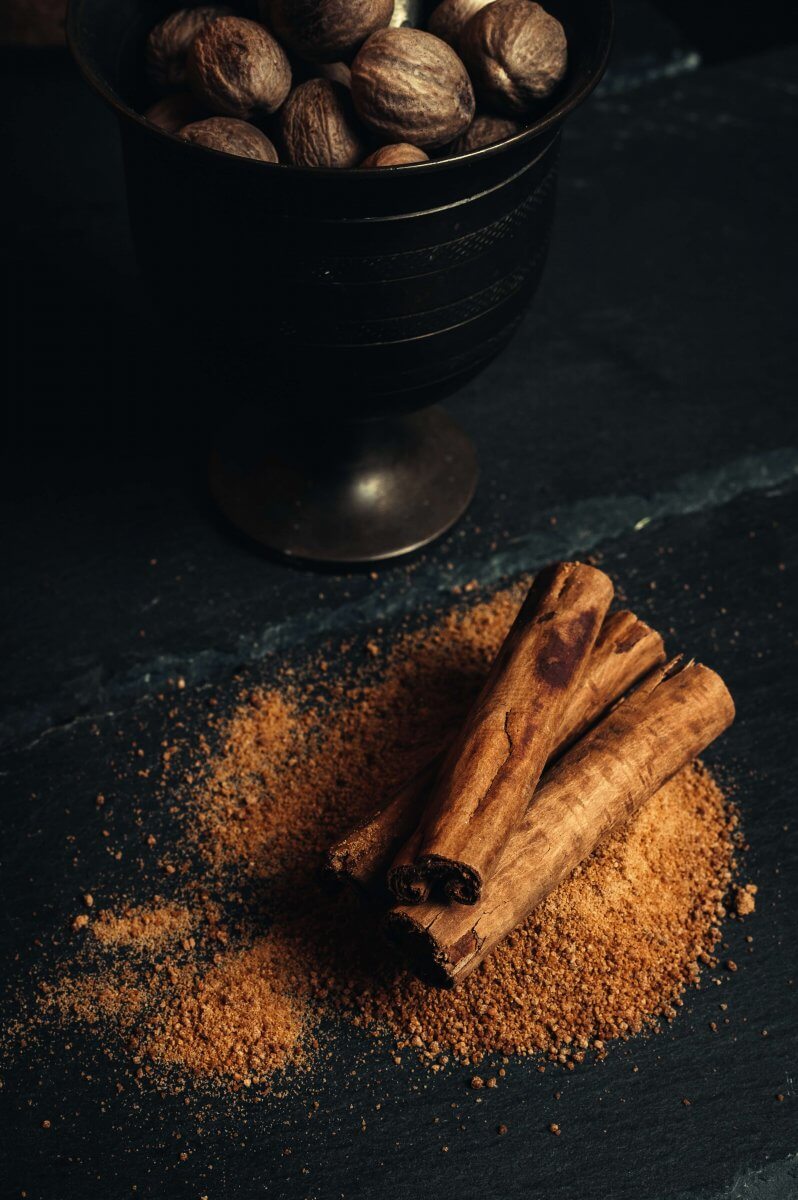
Allspice
Allspice is a spice made from the dried berries of the Pimenta dioica plant. It’s called “allspice” because its flavor is said to resemble a combination of several other spices, including cloves, cinnamon, and nutmeg. Allspice has a warm, slightly sweet, and mildly spicy flavor profile.
Allspice is a suitable substitute in many recipes where whole cloves are called for. It provides a similar warm and slightly sweet flavor, making it a versatile alternative.
When substituting, use roughly the same amount of ground allspice as you would whole cloves. Generally, you can start with a 1:1 substitution, but feel free to adjust to taste. Allspice works well in a variety of dishes, including stews, soups, desserts, and baked goods. It can add a delightful twist to your recipes, so go ahead and give it a try.
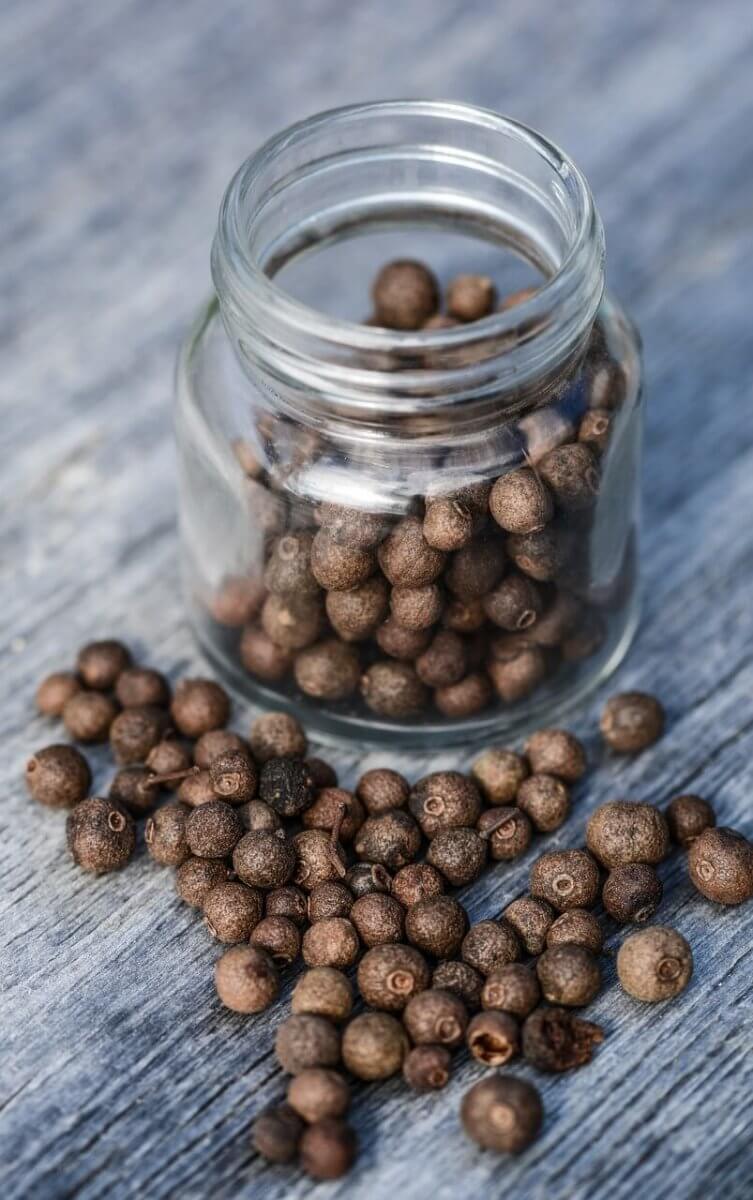
Cardamom
Cardamom is a highly aromatic spice that comes from the seeds of plants in the Zingiberaceae family, which also includes ginger and turmeric. It’s native to the Indian subcontinent and is known for its unique and complex flavor. Cardamom can have both sweet and savory applications and is often used in Indian, Middle Eastern, and Scandinavian cuisines.
Now, whilst cardamom has its own distinct flavor, it can still be used as a substitute for whole cloves. Think of recipes where you want to introduce a warm and aromatic element.
When substituting, you can use ground cardamom as an alternative to whole cloves. Start with about a quarter to half a teaspoon of ground cardamom for each whole clove called for in your recipe. Keep in mind that cardamom has a unique citrusy and floral note in addition to its warm and slightly sweet flavor. Therefore using cardamom may add a subtle taste twist to your dish.
Cardamom can work well in both sweet and savory dishes, so feel free to experiment with it in your recipes to create new and exciting flavor combinations!
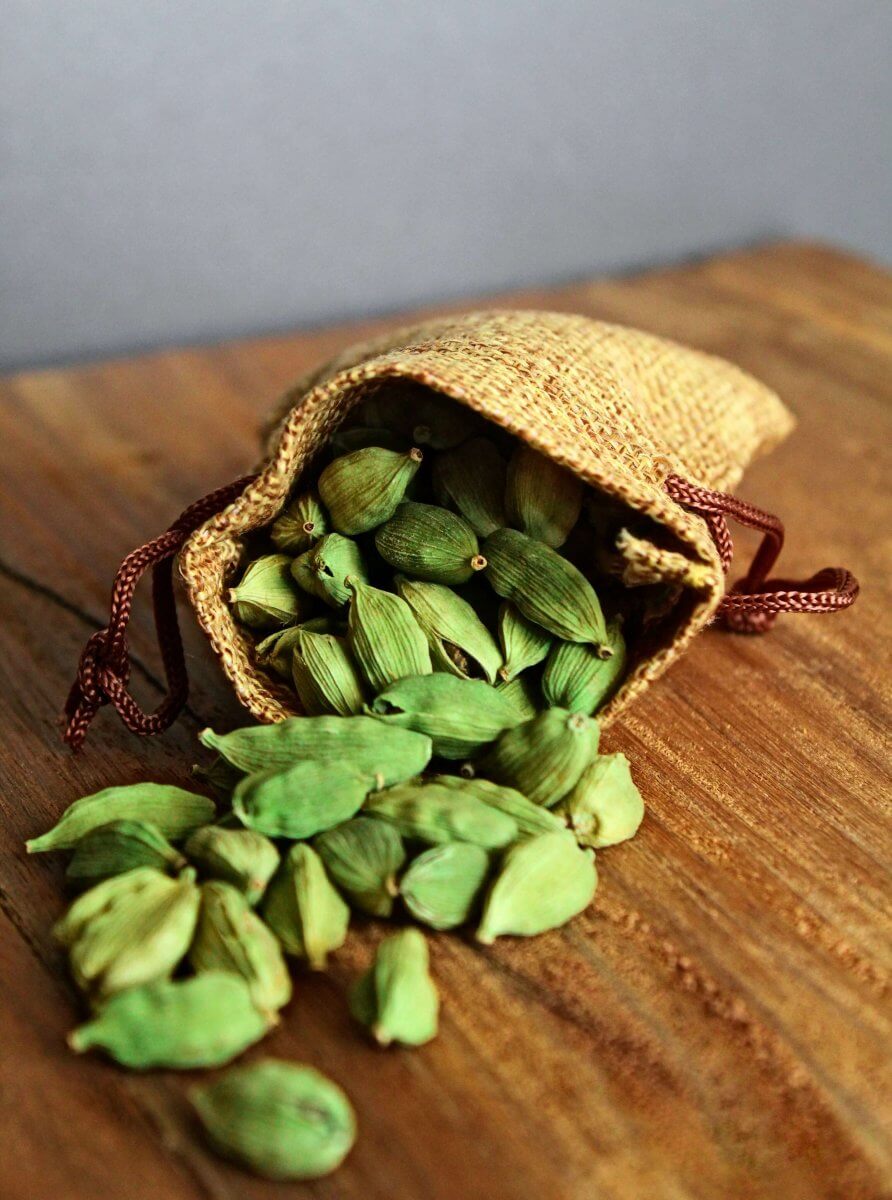
Mace as a Cloves substitute
Mace is a spice that comes from the reddish outer covering of the nutmeg seed. It has a similar warm and slightly sweet flavor to nutmeg but is generally milder and more delicate in taste. Use Mace in both sweet and savory dishes, and particularly in baking and traditional spice blends.
Mace can work as a substitute in certain recipes, particularly those where you want a warm and slightly sweet flavor but with a milder touch than whole cloves. While not identical in taste, they share some similarities.
To use mace as a substitute, you can grind it into a powder or use pre-ground mace. Start with about a quarter to half a teaspoon of ground mace for each whole clove required in your recipe and adjust to taste. Keep in mind that mace can add a unique twist to your dishes due to its subtle nutmeg-like flavor.
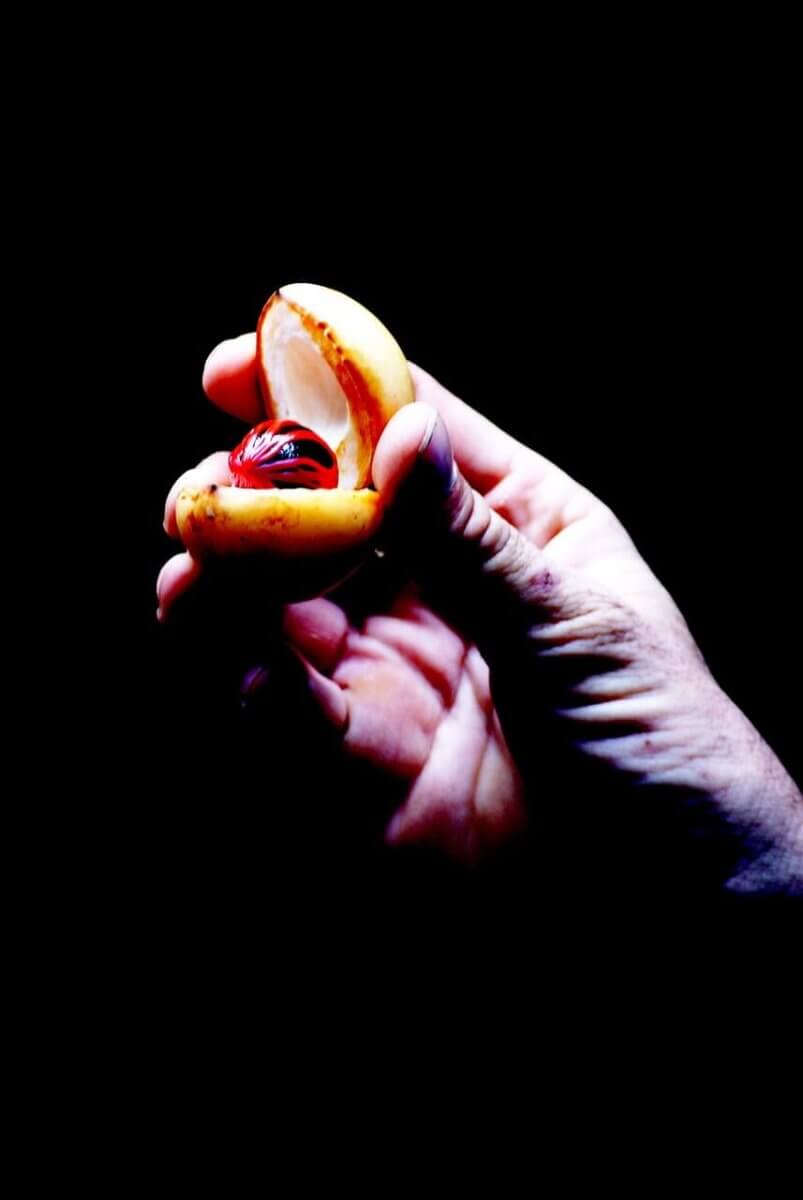
Peppercorns as a Cloves substitute
White and black peppercorns are both spices derived from the same plant, Piper nigrum. They have distinct flavors and are commonly used as seasonings.
- Black Peppercorns: These are the most common type of peppercorns. They have a bold and pungent flavor with a hint of spiciness. Black pepper is often used for its strong, sharp taste and can be found as whole peppercorns and ground pepper.
- White Peppercorns: White peppercorns come from the same plant as black ones, but they are allowed to ripen more fully before harvesting. They are then soaked to remove the outer black husk, leaving only the inner seed. White pepper has a milder and slightly earthier flavor compared to black pepper.
While both types of peppercorns have distinct flavors and are generally used for their spiciness rather than sweetness, they can be used as a substitute for cloves. Especially in recipes where you want a spicy kick!
If you want to use peppercorns as a substitute, you can grind them to a coarse or fine consistency. However, be mindful that this substitution will add a different type of spiciness to your dish. Therefore it may not be an ideal replacement for recipes that rely heavily on the sweet warmth of whole cloves.
Feel free to experiment with peppercorns, but be cautious of the differences in taste between these spices and whole cloves.
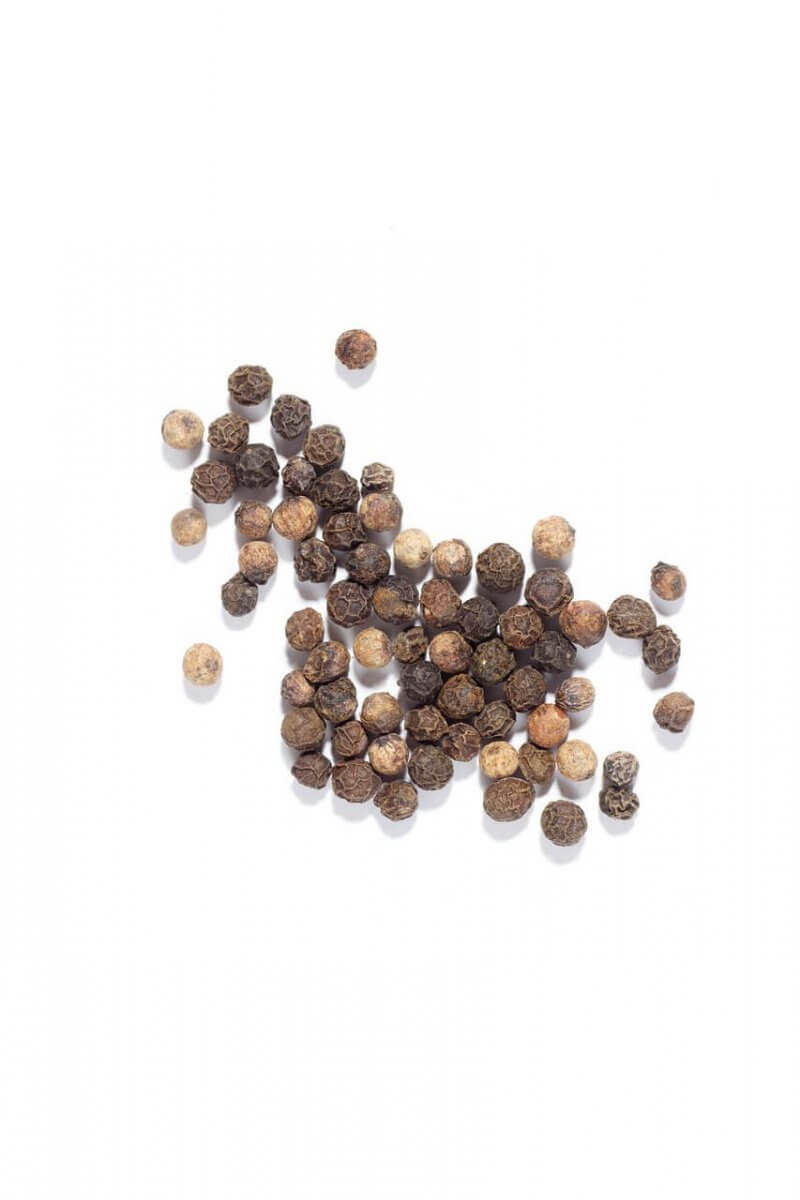
Star Anise as a Cloves substitute
Star anise is a spice derived from the fruit of the Illicium verum tree, native to East Asia. Its name comes from its distinctive star-shaped appearance and has a delicious licorice-like flavor with a hint of sweetness. Star anise is commonly used in Asian and Indian cuisines. However it has also been adopted into some Western recipes, particularly in baking and mulled wine.
You can use star anise as a substitute in certain recipes. Think of recipes where you’re looking for a warm and somewhat sweet flavor with a touch of spiciness. While star anise has its unique taste, it can complement dishes that traditionally call for whole cloves.
To use star anise as a substitute, you can use one star anise pod for every 2-3 whole cloves in your recipe. Remember that star anise has a more pronounced licorice-like note, so the flavor of your dish may have a subtle twist. It works well in savory dishes like braised meats and stews and can add a delightful depth of flavor.
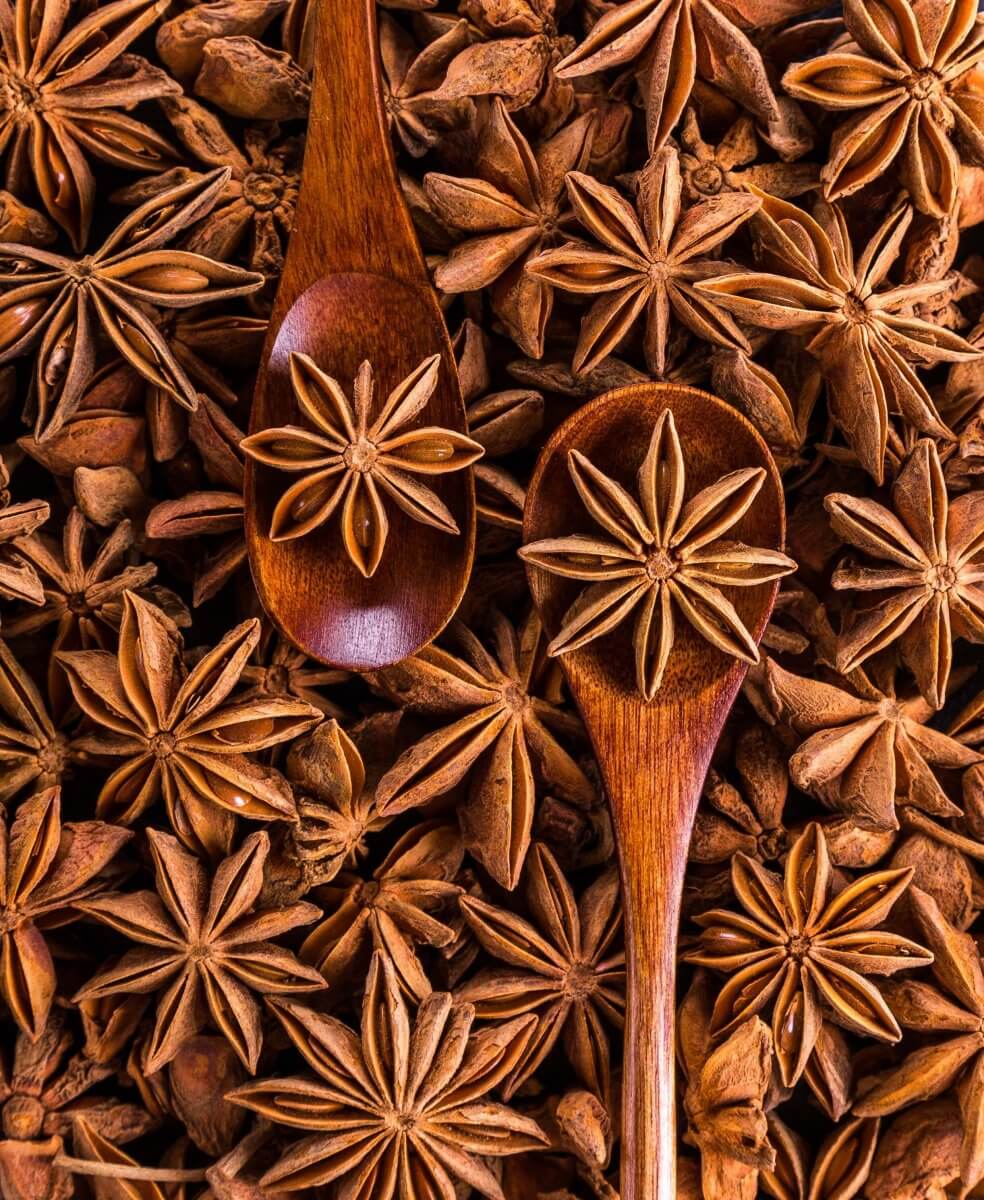
Five-Spice Powder
Five-spice powder is a spice blend that originates from Chinese cuisine. It’s called “five spice” because it typically contains five main spices. However, you should note that the exact ingredients can vary somewhat from one recipe to another. The most common components of five-spice powder include star anise, cloves, cinnamon, Sichuan peppercorns, and fennel seeds. Some variations may also include ginger, nutmeg, or cardamom.
Use five-spice powder as a substitute in recipes where whole cloves are called for, especially if you want to add a complex and aromatic flavor.
Five-spice powder contains cloves as one of its main components, so it will impart a clove-like warmth and sweetness to your dishes. However, keep in mind that it also contains other spices like star anise and Sichuan peppercorns. Thesd ingredients can add unique and sometimes numbing or spicy notes to the blend.
When substituting, you can typically use about 1/4 to 1/2 teaspoon of five-spice powder for each whole clove in your recipe. This substitution works particularly well in savory dishes, such as marinades, stir-fries, and braised meats, where the complex flavor profile of five-spice powder can shine.
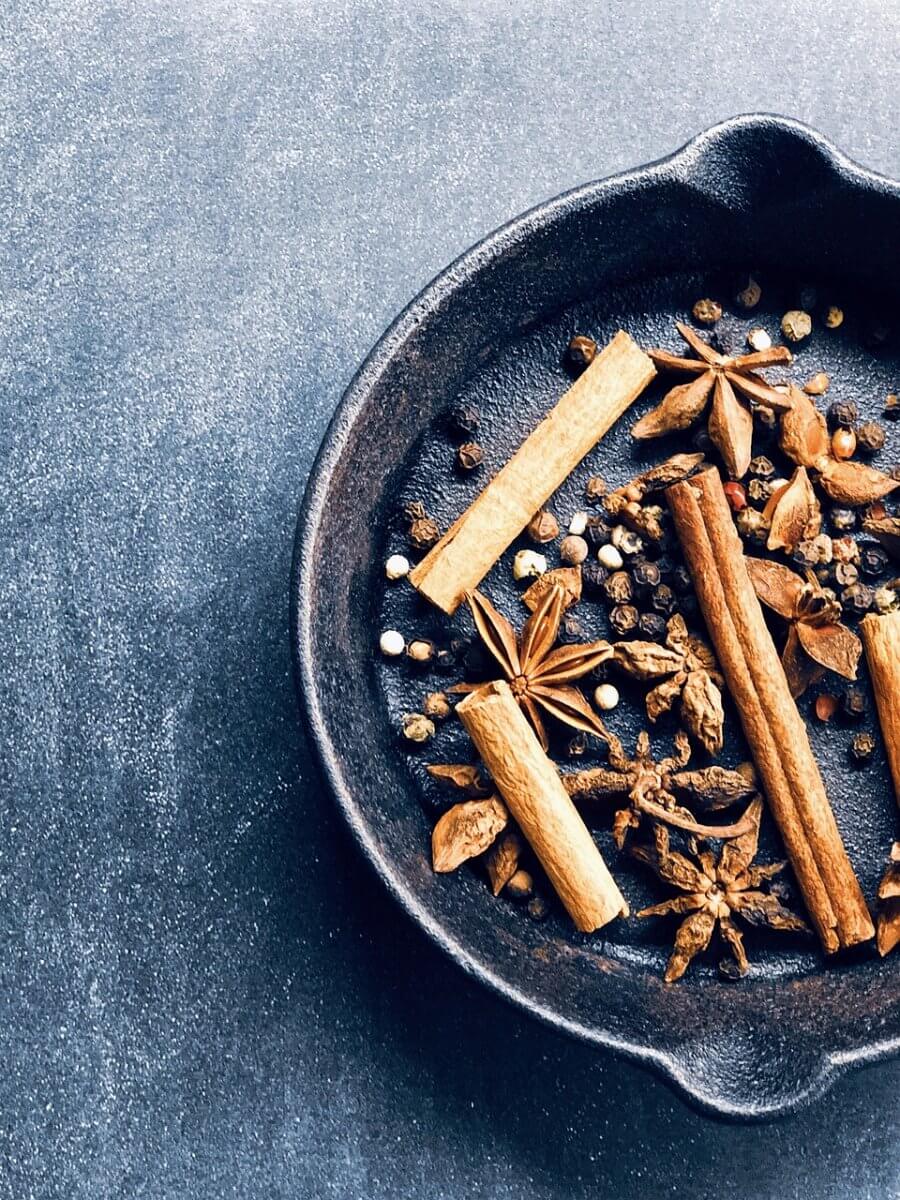
Ginger as a Cloves substitute
Ginger is a widely used spice derived from the rhizome of the Zingiber officinale plant. It has a warm, pungent, and slightly sweet flavor and is used in both sweet and savory dishes around the world. Ginger can be found in various forms, including fresh ginger root, ground ginger, and dried ginger.
Whilst ginger has its own unique flavor, it can work as a substitute in certain recipes, particularly when you want to add warmth and a bit of spiciness to your dish.
If you’re considering ginger as a substitute for whole cloves, it’s important to note that the flavors are different, with ginger having a more pronounced spiciness and less sweetness compared to cloves. However, in recipes where the primary role of cloves is to provide a spicy kick, ginger can be a suitable alternative.
To use ginger as a substitute, you can typically use about a quarter to half a teaspoon of ground ginger for each whole clove in your recipe and adjust to taste. Ginger works well in both sweet and savory dishes.
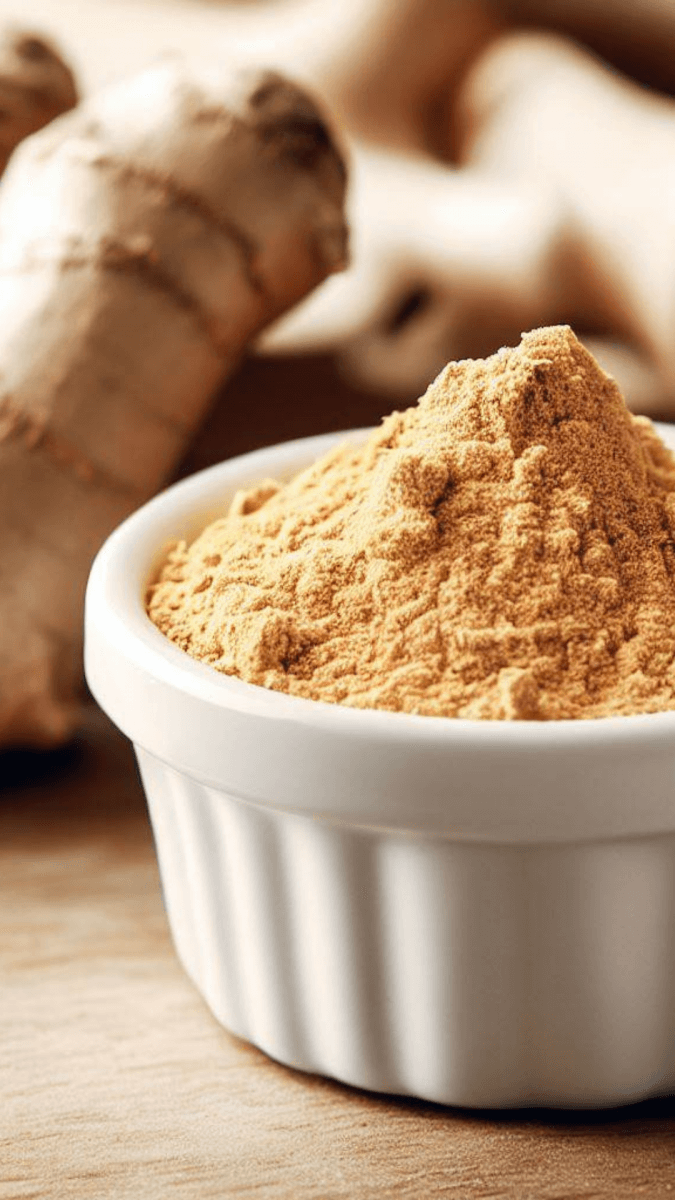
FAQs
Are cloves similar to nutmeg?
So, cloves and nutmeg are kind of like cousins in the spice world. They both bring warm, aromatic vibes to dishes, but they both have their own unique personalities. Cloves have a strong, pungent flavor with a hint of sweetness and a bit of a peppery kick. Nutmeg, on the other hand, is more subtly sweet and a bit nutty, with a warm, mellow aroma. They can sometimes be used in similar recipes, like in baking or holiday dishes, but they each bring their own special touch to the table.
What can I use as a substitute for ground cloves?
Okay, so looking specifically at ground cloves – you can easily sub in some allspice or cinnamon. Allspice is a great stand-in because it has that similar warm, slightly peppery vibe. Cinnamon is a bit sweeter and milder, but it’ll still add a lovely warmth to your dish. If you’re feeling adventurous, you can even mix a little nutmeg and cinnamon together to mimic cloves. Just remember, start with a bit less than the recipe calls for and slowly adjust to taste.
Where are cloves originally from?
Did you know that cloves are actually dried flower buds. They come from the clove tree, and if you look closely, you can see they still resemble tiny flowers. They originally come from the Maluku Islands in Indonesia, also known as the Spice Islands. These islands were the epicenter of the spice trade for centuries, and cloves were so valuable that they were worth their weight in gold! So, when you’re using cloves, you’re adding a bit of floral history to your dish.
Summary for Cloves substitutes
Okay – that’s you all sorted with suitable substitutes for cloves.
Sure, here’s a summary of using various substitutes for whole cloves:
- Ground Cloves: Ground cloves can be used as a 1:1 substitute for whole cloves. Adjust the quantity to taste.
- Cinnamon: Use Ground cinnamon, as a substitute for whole cloves. Also try to use in recipes where the sweetness of cloves is not the primary focus.
- Allspice: Allspice, with its warm and slightly sweet flavor reminiscent of cloves, cinnamon, and nutmeg, can work as a substitute in both sweet and savory dishes.
- Nutmeg: Use Nutmeg can as a substitute in sweet dishes as it offers a warm and nutty flavor. Use it sparingly, as it’s potent.
- Cardamom: Cardamom has a strong, aromatic flavor with a hint of sweetness. Use it as a substitute when cloves provide a background note in a dish.
- Mace: Mace, with its milder nutmeg-like flavor, can serve as a substitute for cloves, particularly in desserts.
- Star Anise: Star anise has a licorice-like flavor with some sweetness and can be a suitable substitute for cloves, particularly in recipes like mulled wine or Asian-inspired dishes.
- Five-Spice Powder: Five-spice powder already contains cloves and can be used as a substitute for whole cloves in savory dishes where a complex and aromatic flavor is desired.
- Ginger: Use Ginger as a substitute for cloves in recipes where spiciness is the primary requirement.
- White or Black Peppercorns: Use peppercorns to provide spiciness, but remember they won’t replicate the sweetness of cloves.
Remember to adjust the quantity of your chosen substitute to taste, as each spice has its unique characteristics.
We have gathered together a lot more facts on ingredients such as herbs, spices, oils, nuts, etc. if you would like to learn some more.
Or if you need to swap out another ingredient have a look at our Substitutes section.
Table of Contents
- What is the best Cloves substitute?
- What are Cloves?
- Where can I buy Cloves?
- What can I substitute for Cloves?
- Clove substitutes
- Ground Cloves
- Nutmeg
- Cinnamon
- Allspice
- Cardamom
- Mace as a Cloves substitute
- Peppercorns as a Cloves substitute
- Star Anise as a Cloves substitute
- Five-Spice Powder
- Ginger as a Cloves substitute
- FAQs
- Are cloves similar to nutmeg?
- What can I use as a substitute for ground cloves?
- Where are cloves originally from?
- Summary for Cloves substitutes
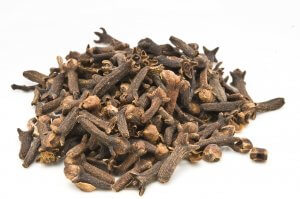
![True Organic Ceylon Cloves Whole, 16 ounces Bulk Bag, USDA Organic & Kosher Certified, Non-GMO, Fresh Organic Cloves, Perfect for Baking, Cooking, Drinks, Teas & Beverages, Pure Ceylon Premium Quality [ 16 oz ]](https://m.media-amazon.com/images/I/41CrcqNrywL._SL500_.jpg)